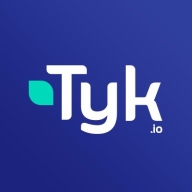

Tyk and IBM Cloud Pak for Integration are competing in the integration platform market. Tyk has the upper hand in cost-effectiveness and simplicity, while IBM Cloud Pak for Integration offers a more robust feature set for complex integration solutions.
Features: Tyk offers streamlined API creation, deployment options, and strong API management capabilities. IBM Cloud Pak for Integration provides comprehensive integration capabilities, sophisticated analytics, and seamless connectivity across multiple systems.
Room for Improvement: Tyk could mature its early-stage features, improve its cloud version, and enhance workflow capabilities. IBM Cloud Pak for Integration could simplify its deployment process, enhance support for smaller businesses, and improve integration flexibility.
Ease of Deployment and Customer Service: Tyk's deployment is straightforward with quick setup and efficient service, while IBM Cloud Pak for Integration offers a more complex deployment process but provides comprehensive support and documentation.
Pricing and ROI: Tyk is cost-effective with a lower setup cost and quick ROI focused on API features. IBM Cloud Pak for Integration, despite a higher initial investment, offers substantial ROI with its comprehensive functionalities for enterprises needing a holistic integration platform.


IBM Cloud Pak for Integration gives you complete, flexible integration using capabilities you need to move at today's speed of business, including the tools to help you achieve your application modernization goals as part of your journey to the cloud.
We monitor all API Management reviews to prevent fraudulent reviews and keep review quality high. We do not post reviews by company employees or direct competitors. We validate each review for authenticity via cross-reference with LinkedIn, and personal follow-up with the reviewer when necessary.